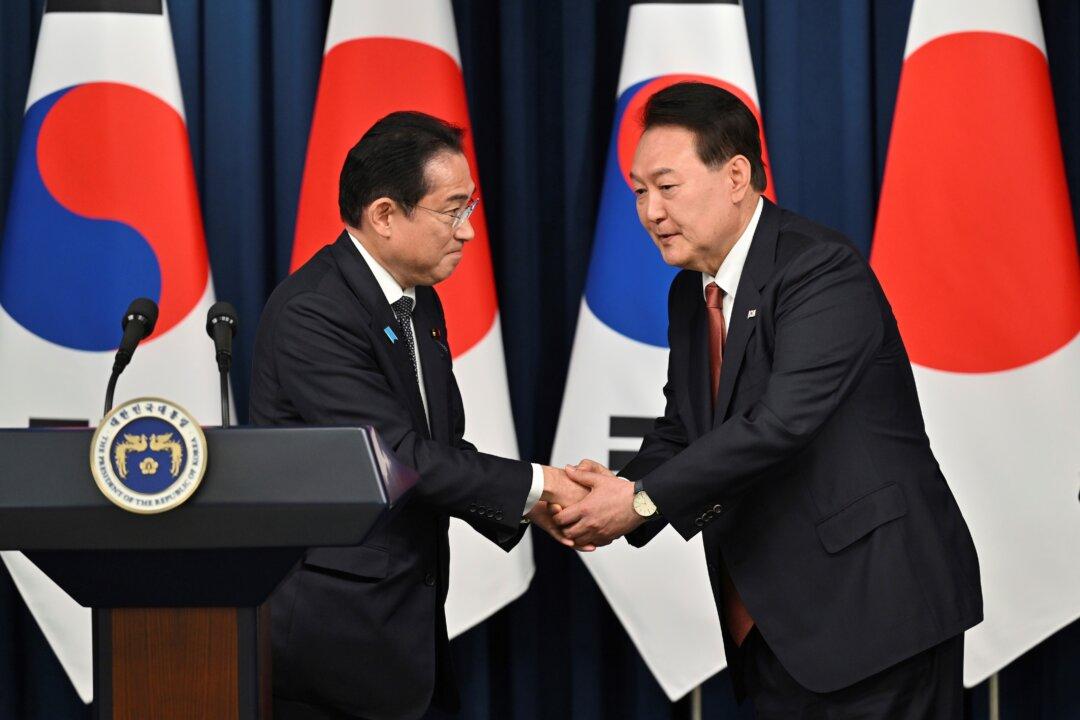Japan’s Prime Minister Fumio Kishida has vowed to deepen cooperation with South Korea to tackle escalating global security challenges in the region as he became the first Japanese leader to visit the country in more than a decade.
Kishida met with South Korean President Yoon Suk Yeol on May 7 for a second time since their meeting in Tokyo in March, when both promised to turn the page on years of animosity over their countries’ wartime disputes.





